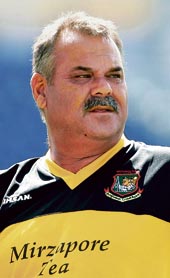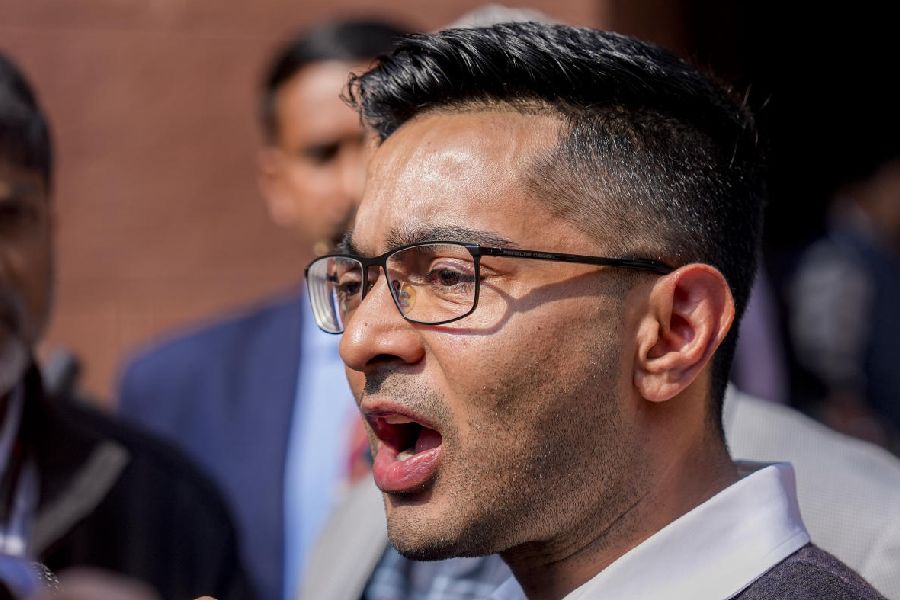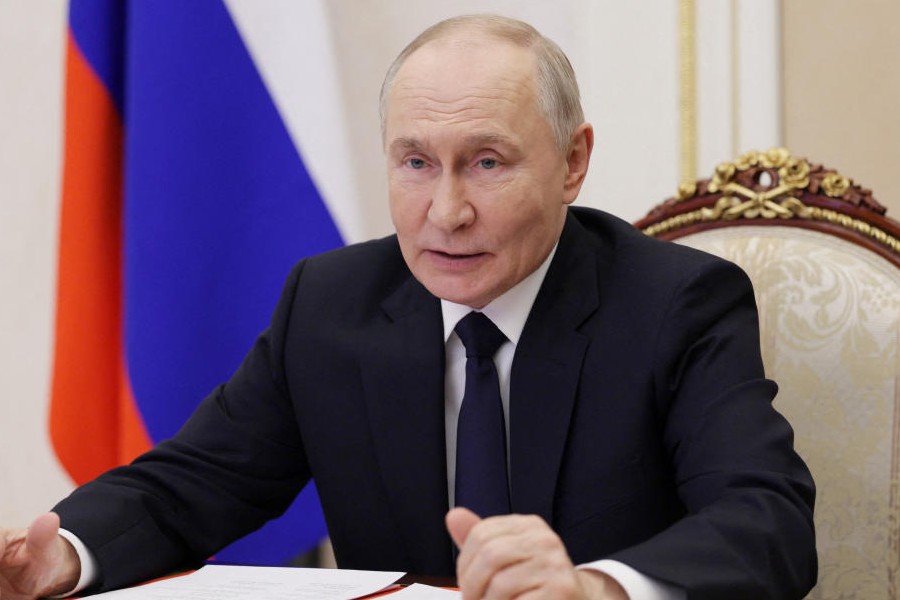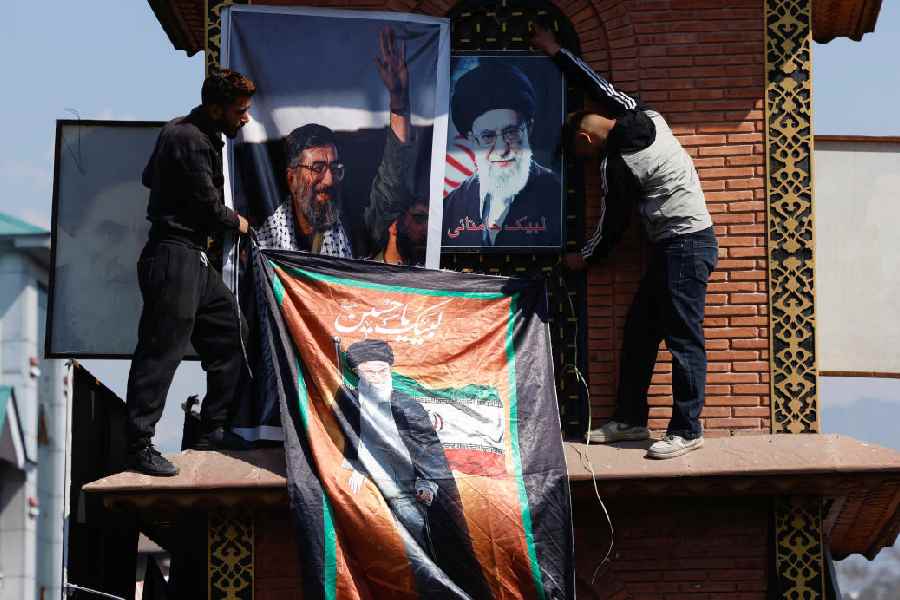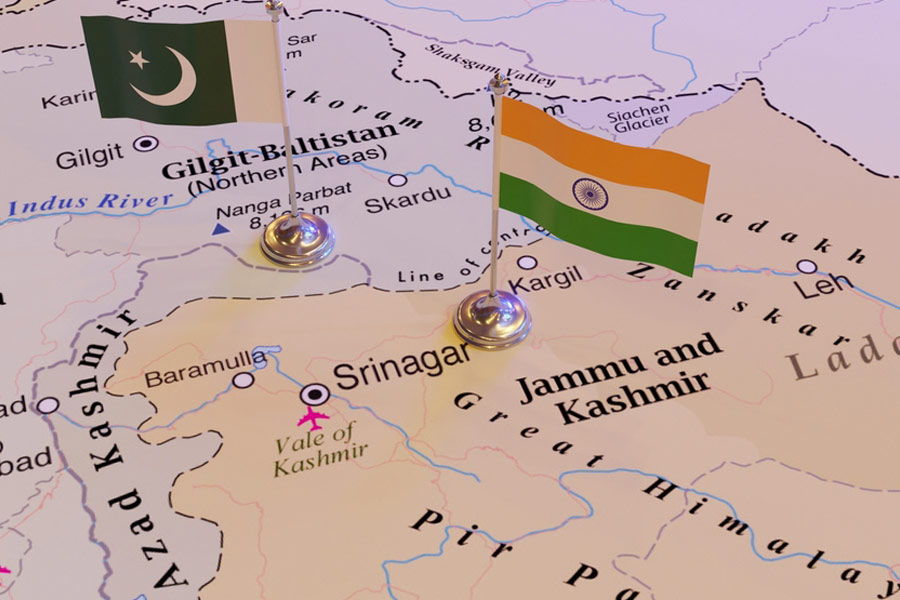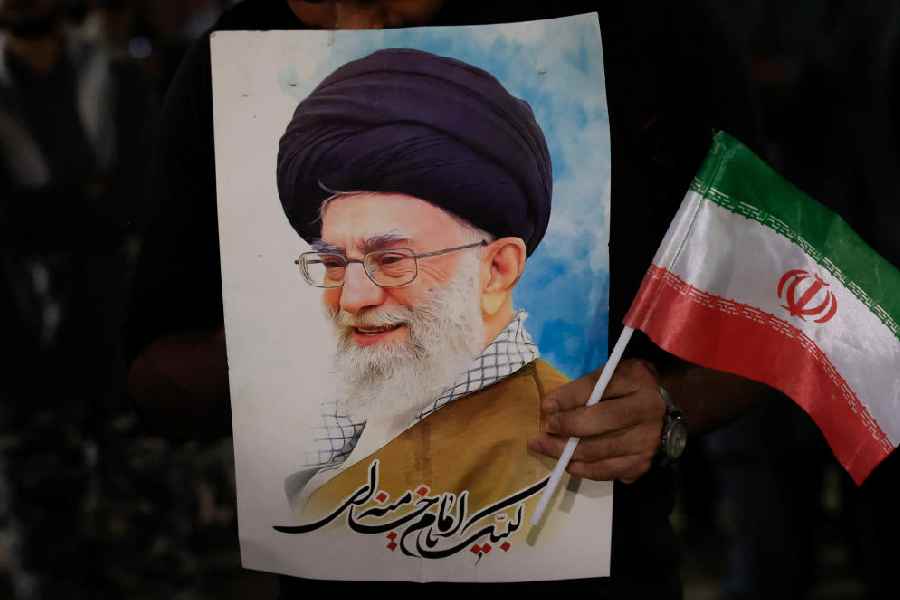 |
Dhaka: Dav Whatmore’s moustache has certainly turned more grey and he has stopped smoking. Barring that, there’s no noticeable change. Yet, the 53-year-old Australian has changed the face of Bangladesh cricket and won’t be forgotten in this part of the world when his innings comes to an end later this month. The other evening, Whatmore (a World Cup-winning coach) spoke to The Telegraph for around 45 minutes.
The following are excerpts:
On being weeks away from closing shop in Bangladesh
(Grins) It’s an unusual period... It’s a new thing for me, for never before have I projected a departure date... Everybody knows it, yet I’m in-charge for an important ODI and Test series... However, I never attempt any job unless I can do it to the best of my ability and my priority is to leave on as good a showing as possible. I’m leaving on good terms with my employer (Bangladesh Cricket Board) and my players. Indeed, I’m leaving with doors open and with happy memories.
On the lessons learnt by coaching international sides Sri Lanka (twice) and Bangladesh
That it’s important to quickly understand what makes for success... To quickly get the combination which works best and quickly grasp whether there are players to fit into the best combination... There have been instances when I’ve wanted Bangladesh to play in a particular manner, but we didn’t have the personnel... In a nutshell, what I’ve learnt most is identifying what’s going to work best at any one point in time.
On improving the technical skills
It’s definitely part of the job... One needs to be a good communicator, otherwise how will any message get across? Communicating is as important as spotting a weakness. The communication gets better when the coach understands the players and they understand him... It’s a two-way flow and this education never comes to an end.
On the extent of actual coaching at the highest level
Not a lot, really... What’s important is to make each player understand his role. People feel a lot warmer when they’re aware of the requirements and when they have the confidence of the captain and coach. Individual work and feedback helps.
On having worked with very strong individuals in Sri Lanka, the Arjuna Ranatungas
There were differences between Arjuna and me, but it’s the captain who is the boss on the field... Arjuna was a tough customer, but he wasn’t that much of an authoritarian in the dressing room... A fair portion of him was democratic and he was open to suggestions...
On whether, given the profile of the players, it was much easier settling down in Bangladesh
It helped... But, then, the team was at rock bottom when I took charge... Because of the situation, I had more power than in Sri Lanka... Having said that, I’ve never been one to abuse authority... If anything, I’ve always trod carefully to eliminate the possibility of mistakes in judgement. (After a pause) Actually, in some ways, the spotlight has been more on me in the past four years... I’ve been expected to perform.
On whether, having expressed his keenness for the India job, he’s apprehensive about the star-culture which prevails
A degree of friction is inevitable in any position... It’s natural that there will be areas of conflict... If that doesn’t happen, then we’re looking at a very unusual situation... An unreal one... Failures, for example, will be there... What’s important is how you handle failure. Similarly, because we’re human, a degree of conflict has to be there... Again, it’s how you handle it... You don’t allow it to get out of hand... There must never be a breakdown in communication between the players and the coach... People will get emotional about certain things and if that’s an issue, a dialogue can do wonders.
On the marks he would give himself as Bangladesh’s coach
It’s for others to rate me.
On the marks he would, for example, give Greg Chappell
(Grins again) No comments.
On the present lot of Bangladesh players
They’re good... There’s no doubt that their heads are above water and, unlike in the past, aren’t in danger of drowning... They’re heading in the right direction. I’ve been impressed with a number of youngsters... They’ve come with less baggage... They aren’t weighed down by the past and, so, are less intimidated. It’s a group which can be very competitive.
On whether he has been a father-figure for the youngsters
I’ve been a professional and, yes, at times one has had to behave like a father. There are times when coaches have to be disciplinarians and there are times when they’ve got to cajole. Ideally, the temperament ought to be even... The performance, obviously, too. (After a pause) If the players need to be yelled at, the coach won’t step back and, when he yells, it’s for the right reason and not because he hates somebody.
On whether he had to motivate himself a lot more when he took charge four years ago
In some ways, the pressure was less... But it’s awful when the team loses... I’ve gone through periods of frustration and those times do get difficult. One shouldn’t get too emotional, but try and focus on the areas which need improvement. I must confess there have been occasions when, in the privacy of my hotel room, I’ve been reduced to tears.
On whether coaches have a shelf life
Yes... But the period varies... After four years here, I need a break... Need to get away and recharge batteries... Four years is enough in this environment... Back in 2003, though, I’d thought I still had much to give even after four years (second innings) with Sri Lanka... It depends on the individual, depends on the circumstances... Duncan Fletcher and John Buchanan put in over seven years... There’s always a time when one has to move on.
On whether the coach’s profile is important
It’s important to have a good coach. Period.
On who is the boss in the dressing room
Look, it becomes a problem if you start looking at it from a who-is-the-boss angle... Don’t the captain and coach have a common goal?
On coaches nowadays drawing more and more attention
Well, we play an important role... Perhaps, it’s inevitable.
On Bangladesh having pulled off terrific ODI wins during his tenure
To be honest, the players’ behaviour after some of the successes left me quite unhappy... They seemed to get carried away and, the next morning, I had to ask them not to behave in a manner which suggested they’d achieved the ultimate... If that’s the attitude, then you won’t win another big game.
On whether, had he been Sri Lanka’s coach, their approach would have been different in the last World Cup final
It’s an unfair question... The Sri Lankans played well in the tournament, but it didn’t help that they lost the toss... They would have done better setting a target.
On Muttiah Muralidharan, who regards him as a mentor of sorts, looking to continue for two-three years
He’s hungry, but needs to be managed well as his bowling shoulder takes such a pounding... We did interact during the World Cup... The best thing about Murali is that he speaks his mind... There are no shades of grey.
Finally, his advice to whoever succeeds him
(Laughs) Be patient... Be understanding... Have the will to win and don’t rest till you’ve reached your goal.

